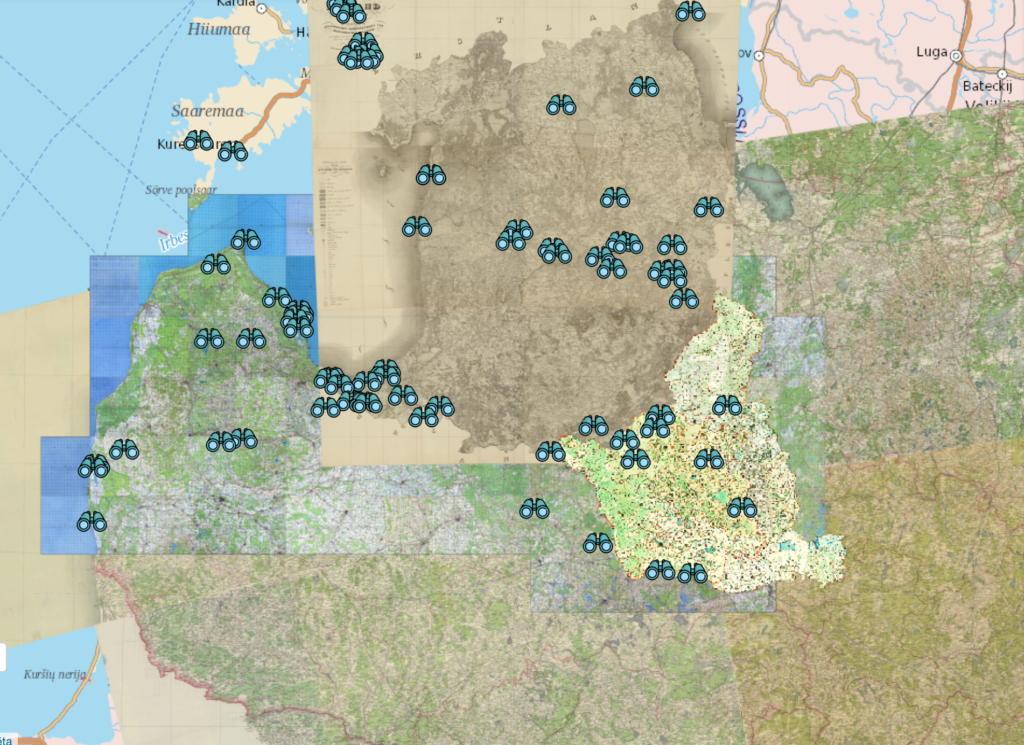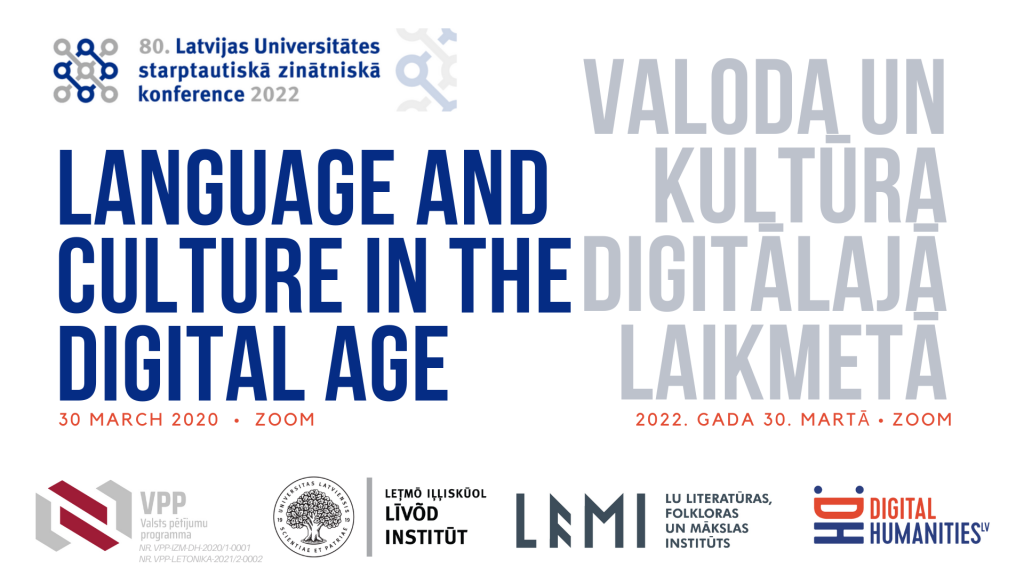We are happy to announce the fourth Livonian Summer University (LSU), which will be held in Kuoštrõg (Latv. Košrags). LSU will be held from the 26 July to the 4 August. As Livonian is an indigenous language in Latvia and the most endangered language in Europe, LSU is one of the initiatives which helps raise awareness as well as introduce Livonian and Livonian studies to potential students, researchers and create the environment, where connections and research projects can be born. Previously the Livonian Summer University took place in 2013 and 2021 (Kuoštrõg), and in 2017 in Pizā (Latv. Miķeltornis).
The goal of the Livonian Summer University is to provide students and researchers with the possibility to study Livonian (on beginner and intermediate levels), get better acquainted with the Livonian history, culture, present situation and reinforce and expand the community of researchers of Livonian and Livonians. The programme of the Livonian Summer University consists of lessons of the Livonian language, research workshops, lectures on various topics, trips and hikes to important Livonian locations and the cultural program. Along with the usual topics LSU2024 will have a special focus on areal studies. The language of instruction is English.
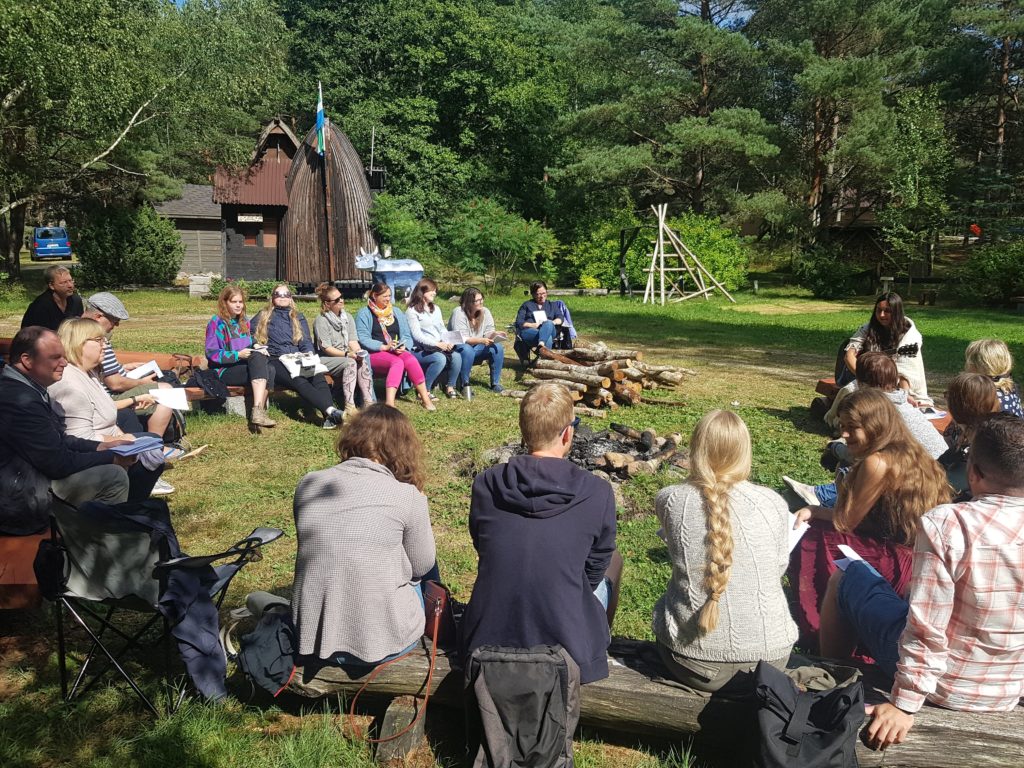
Language
The participants of the Livonian Summer University will study Livonian in multiple groups (the lessons will be held in English). The participants will be able to join lessons for beginners or for intermediate learners. The language lessons will be accompanied by lectures which will help better understand the peculiarities and nature of Livonian, and various aspects of researching the Livonian language and culture, as well as language and culture contacts within the Central-Baltic area.
Lectures
It has already become a tradition that the participants of LSU will be able to enjoy the lectures by leading researchers in the fields of Livonian language, culture, history, and this time we are also paying special attention to interdisciplinary approaches.
Excursions
The trips and hikes to the Livonian villages and other important landmarks will help students better understand the situation of Livonians, their language and culture, and their history. The excursions will be guided by our lecturers.
Cultural program
During the cultural program students will get acquainted with the Livonian culture first-hand and practice newly acquired knowledge of Livonian and Livonian culture (e.g., by singing Livonian songs or preparing Livonian food, or smoking Livonian fish).
Preliminary program
Friday (26 July)
Arrival
19.00–20.00 Dinner
Getting acquainted
Saturday (27 July)
8.00–9.00 Breakfast
9.00–14.00 Livonian language
14.00–15.00 Lunch
15.00–17.00 Workshops
17.00–19.00 Lectures
19.00–20.00 Dinner
Sunday (28 July)
8.00–9.00 Breakfast
9.00–14.00 Livonian language
14.00–15.00 Lunch
15.00–17.00 Workshops
17.00–19.00 Lectures
19.00–20.00 Dinner
Monday (29 July)
8.00–9.00 Breakfast
Excursions
19.00–20.00 Dinner
Tuesday (30 July)
8.00–9.00 Breakfast
9.00–14.00 Livonian language
14.00–15.00 Lunch
15.00–17.00 Workshops
17.00–19.00 Lectures
19.00–20.00 Dinner
Wednesday (31 July)
8.00–9.00 Breakfast
9.00–14.00 Livonian language
14.00–15.00 Lunch
15.00–17.00 Workshops
17.00–19.00 Lectures
19.00–20.00 Dinner
Thursday (1 August)
8.00–9.00 Breakfast
Excursions
19.00–20.00 Dinner
Friday (2 August)
8.00–9.00 Breakfast
9.00–14.00 Livonian language
14.00–15.00 Lunch
15.00–17.00 Workshops
17.00–19.00 Lectures
19.00–20.00 Dinner
Saturday (3 August)
8.00–9.00 Breakfast
The Livonian festival
Sunday (4 August)
8.00–9.00 Breakfast
Departure
Lecturers
Valts Ernštreits, University of Latvia – Livonian language; workshops on place names
Tuuli Tuisk, University of Tartu – Livonian language; workshops on phonetics
Miina Norvik, University of Tartu, Uppsala University – Livonian language; workshops on morphosyntax
Karl Pajusalu, University of Tartu – Salaca Livonian; workshops on place names
Gunta Kļava, University of Latvia – Acquisition of endangered languages
Uldis Balodis, University of Latvia – Livonian grammar and language contacts
Gerson Klumpp, University of Tartu
Petar Kehayov, Universiy of Tartu
And invited speakers.
Practical information
LSU will take place in a guest house/ complex Pītagi, which is in Košrags, Latvia. It is in the historical territory where the last productive Livonian community existed (the Livonian coast) and where Livonian was widely spoken. It is important to note that the Livonian coast is one of the most remote and isolated locations in Latvia and thus is far from any larger settlement. A store where you can buy the most basic things (like food and toothpaste) is located only a few km away, but any bigger shopping centres are out of our reach during LSU and we need to be prepared for that.
All the basic needs (like catering and accommodation) will be taken care of. However, note that single rooms will not be available, participants will be staying in double rooms (in case of better rooms might also be triple). We will try our best to provide a varying diet, and take allergies into consideration, however we will not be able to provide everyone with a specialized meal plan, so if there are any serious considerations, please let us know, but bear in mind that we may not be able to address those issues. Other catering options are beyond our reach.
It is also important to keep in mind that we will be in nature so appropriate comfortable clothing and footwear (for various weather conditions: sunny and hot, or rainy and cool) is necessary. It is also advisable to take care of insect repellents, sunscreen, allergy medicine (if it is relevant) and the like. We would also advise you to pack your swimsuits as we will be spending our time near the sea with a beautiful beach, which you can enjoy in your free time.
Arrival and transportation
The transportation from Riga to Košrags and during LSU is arranged by the organizers of LSU. Participants themselves will need to arrange the transportation to Riga (e.g., plane tickets), travel expenses to Riga are not covered by LSU. Please, see the funding possibilities of your home university.
Departure
Departure will be arranged on the last day of LSU.
Livonian Summer Unversity is financially supported by the Ministry of Education and Science (Latvia) and is taking place in the framework of UL LIvonian Institute projects:
State Research Programme projects “Towards Development of Open and FAIR Digital Humanities Ecosystem in Latvia” is implemented within the framework of the National Research Programme “Digital Resources of the Humanities” and “Latvian Studies for the Development of a Latvian and European Society” “Multifunctional dictionary of Livonian” No. VPP-LETONIKA-2021/2-0002 (2021.–2024.)
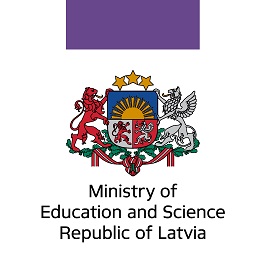
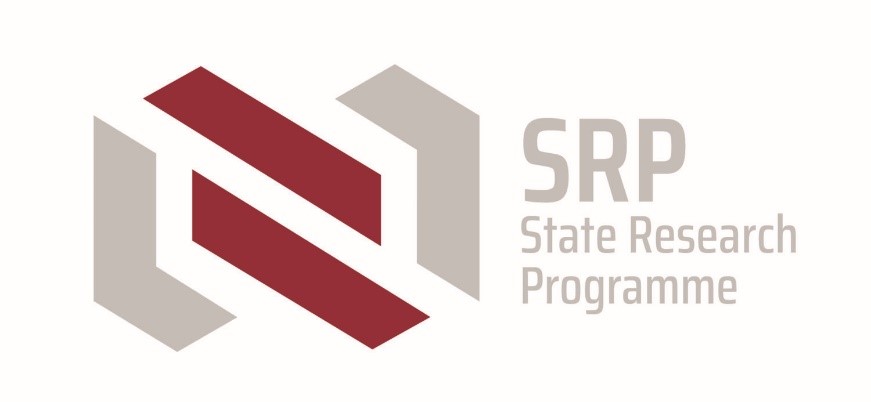
Fundamental and Applied Researsh project “Continuity of Livonian: understanding of language transmission processes in a critically endangered contemporary indigenous community to develop process-driven instruments for preservation and revitalization.”
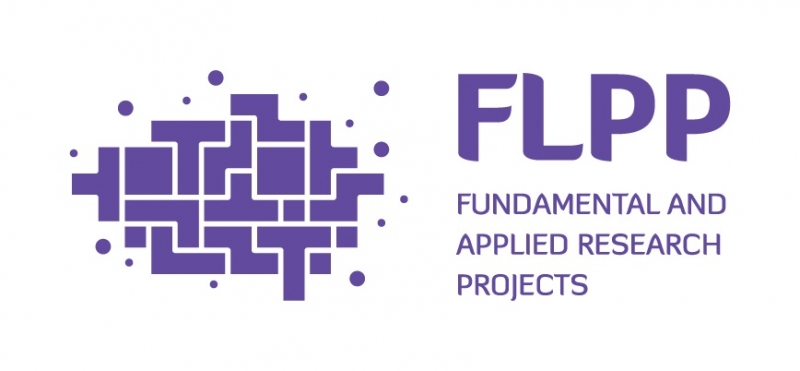
Partners:



